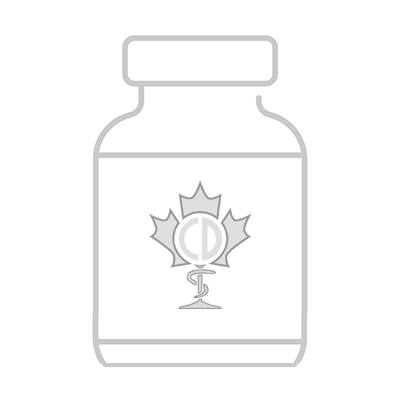What is Cardene used for?
Cardene (nicardipine) is a calcium channel blocker. It works to relax and therefore widen your blood vessels which in turn eases the workload of the heart by making it easier for the heart to pump. Cardene is used to treat high blood pressure (hypertension), and chest pain (angina). Cardene can also be used for purposes not listed in this summary.

Cardene Information
How to Use Cardene?
In addition to using Cardene, your high blood pressure treatment may also include changes in the types of foods you eat (especially those high in sodium), and weight control. Your doctor will discuss your diet with you and tell you which of these are most important for you. Talk with your doctor before you change your diet.
Many patients with high blood pressure won’t notice any signs of this condition. In fact, many may feel perfectly normal. It is important for you to take your medication exactly as directed, and that you keep your regular appointments with your doctor even when you’re feeling well.
Remember that Cardene won’t cure your high blood pressure, though it helps control it. You must continue to take Cardene as directed if you expect your blood pressure to lower and stay in the right zone. You might have to take high blood pressure medication for the rest of your life. If high blood pressure remains untreated it can cause serious issues like blood vessel disease, stroke, kidney disease, or heart failure.
Dosing
Different patients will be prescribed different dosages of Cardene. Follow your doctor’s instructions on your prescription label. The following information is the average doses of Cardene and it might be different from what your doctor is giving you. Always follow your doctor’s advice.
The amount of medication and how many times per day your take it depends on the strength of the medication. If you’re using it for Angina, usually the doctor will prescribe 20 mg 3 times a day. You may have your dose increased after you’ve been on it for a bit.
If you take Cardene for High Blood Pressure you may be prescribed either regular or extended release capsules. For the regular capsules, your doctor will initially prescribe 20 mg taken 3 times daily. Your dose may be increased. For the extended release capsules, you’ll start off with 30 mg twice per day. Your dose will be increased if it’s necessary.
Cardene Drug Interactions
Interactions between Cardene and other medications you take can change how those medications work or may give you a higher risk of side effects. Talk to your doctor regarding drug interactions before you start Cardene.
The following drugs interact with nicardipene:
This is not a complete list of interactions with Cardene. Give a list of the prescription, non-prescription, vitamin, and herbal products you take to your doctor so that you can ensure you’re avoiding drug interactions. If you have questions for a pharmacist, you can reach out and ask to speak to one for counselling at 1-844-416-4282.
What are side effects of Cardene?
Along with the regular Cardene effects, it can also cause unwanted side effects. Though, not all of these effects may occur, if they do, they may require medical attention.
Check in with your doctor immediately when any of these side effects occur:
More Common
- Arm, back, or jaw pain
- Chest pain or discomfort
- Chest tightness or heaviness
- Fast or irregular heartbeat
- Nausea
- Palpitations
- Shortness of breath
- Sweating
- Swelling of the legs
Less Common
- Shakiness
- Swelling
Rare
- Blurred vision
- Cold hands and feet
- Cold sweats
- Confusion
- Cough or hoarseness
- Difficulty swallowing
- Dizziness, lightheadedness or faintness when getting up from a lying or sitting position suddenly
- Extra heartbeat
- Fever or chills
- Hives
- Increase in frequency of urination
- Itching
- Lower back or side pain
- Painful or difficult urination
- Puffiness or swelling around the eyes, eyelids, tongue, lips, or face
- Skin rash
- Unusual tiredness or weakness
- Wheezing
The following side effects are indicative of overdose. Get emergency help immediately if you experience any of the following symptoms:
- Sleepiness
- Slurred speech
There are some side effects of Cardene that do not generally need medical attention. These will likely go away during treatment once your body adjusts to the medication.
Only bring the following symptoms up to your doctor if they’re bothersome or you have questions:
More Common
- Feeling of warmth
- Headache
- Lack or loss of strength
- Redness of the face, neck, arms and occasionally, upper chest
Less Common
- Acid or sour stomach
- Belching
- Burning, itching, pins and needles, tingling, crawling or numb feelings
- Difficulty in moving
- Dry mouth
- Heartburn
- Indigestion
- Joint pain
- Muscle aching or cramping
- Muscle pains or stiffness
- Rash
- Stomach discomfort, upset, or pain
- Swollen joints
Rare
- Changes in vision
- Constipation
- Continuing ringing or buzzing or other unexplained noise in ears
- Decreased interest in sexual intercourse
- Difficult or labored breathing
- Discouragement
- Fear or nervousness
- Feeling of constant movement of self or surroundings
- Feeling sad or empty
- Hearing loss
- Inability to have or keep an erection
- Increase in body movements
- Irritability
- Lack of appetite
- Loss of interest or pleasure
- Loss in sexual ability, drive, performance, or desire
- Nervousness
- Pain or tenderness around eyes and cheekbones
- Runny nose
- Sensation of spinning
- Sneezing
- Sore throat
- Stuffy nose
- Trouble concentrating
- Trouble sleeping
You may experience some side effects of Cardene that do not appear on this list. If you do notice other side effects, talk with your doctor immediately.
